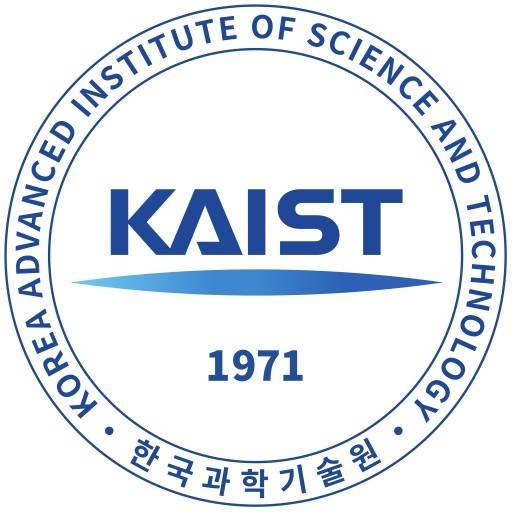Photos of university / #official_kaist
Industrial and Systems Engineering at the Korea Advanced Institute of Science and Technology (KAIST) is a comprehensive and innovative program designed to equip students with the skills and knowledge necessary to optimize complex systems and improve operational efficiency across various industries. This interdisciplinary field integrates principles from engineering, mathematics, computer science, and management to develop solutions that enhance productivity, quality, and sustainability in manufacturing, service, healthcare, logistics, and other sectors. The program emphasizes a strong foundation in systems modeling, simulation, optimization techniques, and data analytics, enabling graduates to analyze and design systems that are efficient, resilient, and adaptable to changing technological and market demands. At KAIST, students have access to cutting-edge laboratories and research centers dedicated to areas such as industrial automation, supply chain management, and intelligent manufacturing. The curriculum is carefully structured to balance theoretical knowledge with practical applications, often involving industry projects, internships, and collaborative research opportunities. Faculty members are distinguished researchers actively contributing to advancements in industrial engineering and systems optimization, fostering an environment of innovation and scientific inquiry. The program aims to prepare students for leadership roles in academia, industry, and government, promoting sustainable development and technological innovation. Graduates of the Industrial and Systems Engineering program from KAIST are highly sought after in global job markets, capable of addressing complex challenges through analytical thinking, creative problem-solving, and interdisciplinary collaboration. Whether pursuing careers in automation, quality management, operations analysis, or entrepreneurship, students are nurtured to become solutions-oriented professionals committed to societal progress and industrial excellence. This program reflects KAIST’s dedication to fostering technological excellence and cultivating future leaders who will drive the advancement of industrial systems worldwide.
Mandatory General Course
- Special Lecture on Leadership
- Ethics and Safety II
- Scientific Writing
- Introduction to Computer Application
- Probability and Statistics
- Introduction to Materials and Engineering
- Engineering Economy & Cost Analysis
- Introduction to Instruments
- Entrepreneurship and Business Strategies
- Patent Analysis and Invention Disclosure
- Collaborative System Design and Engineering
Elective Major Courses
- Human Centered Systems Design
- Advanced Topics in Engineering Economy & Cost Analysis
- Production System Design
- Optimal Location of Facilities
- Linear Programming
- Simulation and System Modeling
- Systems Engineering
- Convex Optimization
- Network Theory and Applications
- Scheduling Theory and Applications
- Business Telecommunication Systems
- Genetic Algorithms and Applications
- Convex Optimization
- Regression Analysis: Theory and Practice
- Manufacturing System and Supply Chain
- CAD/CAM and Geometric Modeling
- Product Lifeclcle Management
- Knowledge-Based Design System
- Advanced Information System Engineering
- Information Security Policy & management
- Human-Computer Interaction: Theory and Design
- Military Operations Research Theory and Applications
- War Game Modeling
- Analysis of Weapon Systems
- Healthcare Service Delivery Systems
- Portfolio management and Financial Optimization
- Structuring and Pricing of Financial Products
- Risk Management
- Fundamentals of Systems Engineering
- Research in Financial Economics
- Analysis of Inventory Management Systems
- Integer Programming
- Stochastic Processes
- Queueing Theory
- Combinatorial Optimization
- Intelligent Systems & Soft Computing
- Wireless and Cellular Communication Systems
- Supply Chain Optimization
- Mathematical Statistics
- Forecasting and Time Series Analysis
- Design and Analysis of Experiments
- Life Testing and Survival Analysis
- Quality Engineering
- Data Mining
- Introduction to AI/ES Technology
- Stochastic Modeling II
- Material Storage & Handling Systems
- Cognitive Engineering
- Special Topics in Industrial Engineering II
Research
- Thesis (Master's Course)
- Seminar in MS
- Individual Study (MS)
Requirements
- Application Form
- Statement of Financial Resources
- Letters of Recommendation
- Degree/Diploma
- Transcripts
- English Proficiency Test Reports (EPT)
TOEFL (PBT 560, CBT 220, IBT 83), IELTS 6.5, TEPS 599, TOEIC 720 or higher - Curriculum Vitae
- List of Honors and Awards
- Employment Certificate
- School Profile/Credit Rating System
- The application fee is KRW 80,000 or USD 80. Payment can be made by credit card or bank transfer after writing application form online. Please note that application fee is non-refundable and you cannot modify application form once you pay the application fee.
Scholarships
- KAIST International Student Scholarship
- Korean Government Scholarship (KGSP)
- Russian Government Scholarship – Global Education Program (GEP)
The Industrial and Systems Engineering program at Korea Advanced Institute of Science and Technology (KAIST) is designed to equip students with comprehensive knowledge and advanced skills necessary for optimizing complex systems and processes across various industries. The program focuses on the application of engineering principles to improve efficiency, productivity, and quality in manufacturing, logistics, healthcare, and service industries. Students are trained in core areas such as operations research, production systems, quality control, supply chain management, human factors engineering, data analytics, and automation technologies. KAIST emphasizes a multidisciplinary approach, integrating principles from mechanical engineering, electrical engineering, computer science, and management science to prepare graduates for leadership roles in innovative industries. The curriculum includes coursework, project-based learning, and research opportunities that foster critical thinking, problem-solving, and technological innovation. It aims to develop professionals capable of designing, analyzing, and managing complex systems with an emphasis on sustainability and competitiveness in a global context. The program’s faculty comprise internationally renowned researchers dedicated to advancing knowledge through teaching and cutting-edge research. Collaboration with industry partners provides students with practical experience and exposure to real-world challenges, enhancing their employability upon graduation. The program also encourages students to participate in internships, conferences, and joint research projects with overseas institutions, promoting international exchange and cooperation. Graduates of the Industrial and Systems Engineering program at KAIST typically pursue careers in manufacturing firms, consulting companies, logistics firms, government agencies, and research institutions, contributing to technological innovation and operational excellence. The degree prepares students to become industry engineers, system analysts, project managers, and research scientists committed to improving societal infrastructure and industrial processes. Overall, KAIST’s Industrial and Systems Engineering program aims to produce versatile, forward-thinking professionals who can adapt to rapid technological changes and lead system transformation initiatives worldwide, fostering sustainable development and economic growth.
(Approximately 1,700 characters)


